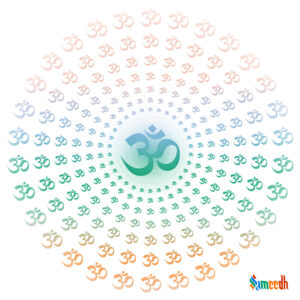Hinduism does not have a single holy book like some other religions. Instead, it encompasses a vast body of religious and philosophical literature.

The two main categories of sacred texts in Hinduism are Shruti and Smriti.
- Shruti (Heard or Revealed Texts): These are considered the most authoritative and are believed to have been directly revealed to ancient sages during deep meditation. The Vedas are the primary texts in this category, and they are composed of four collections: Rigved, Samaved, Yajurved, and Atharvaved. Each Veda contains hymns, rituals, and philosophical teachings.
- Smriti (Remembered Texts): These texts are considered of human origin and include a wide range of scriptures, such as epics, Puranas (mythological narratives), Dharma Shastras (legal and ethical texts), and Agamas (ritual and temple construction manuals). The two most famous epics, the Mahabharat and the Ramayan, fall into the category of Smriti. The Bhagavad Gita, a philosophical dialogue within the Mahabharat, is particularly revered.
Among the various sacred texts, the Bhagavad Gita is often regarded as one of the most important and widely read scriptures. It is a conversation between Prince Arjuna and the god Krushna, who serves as his charioteer. The Gita addresses moral dilemmas, duty (dharm), and the nature of existence, providing guidance on how to live a righteous life.
In summary, while the Vedas are considered the most authoritative texts in Hinduism, there is no single holy book. The diversity of Hindu scriptures reflects the richness and complexity of the religion. Different sects and communities within Hinduism may emphasize different texts based on their traditions and beliefs.